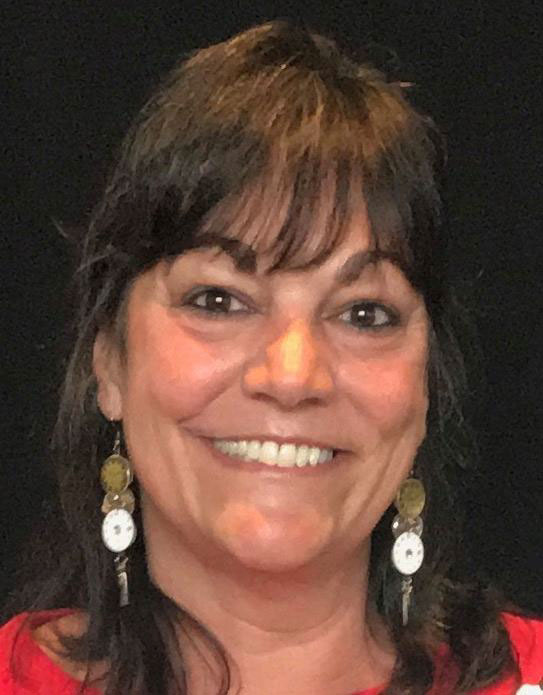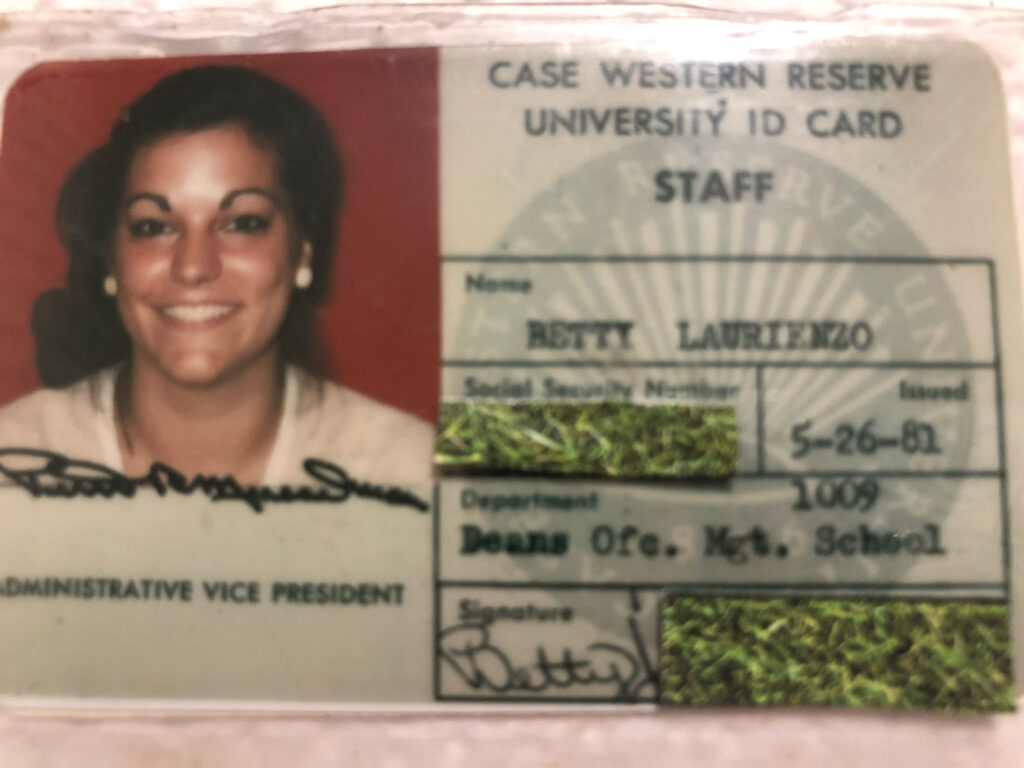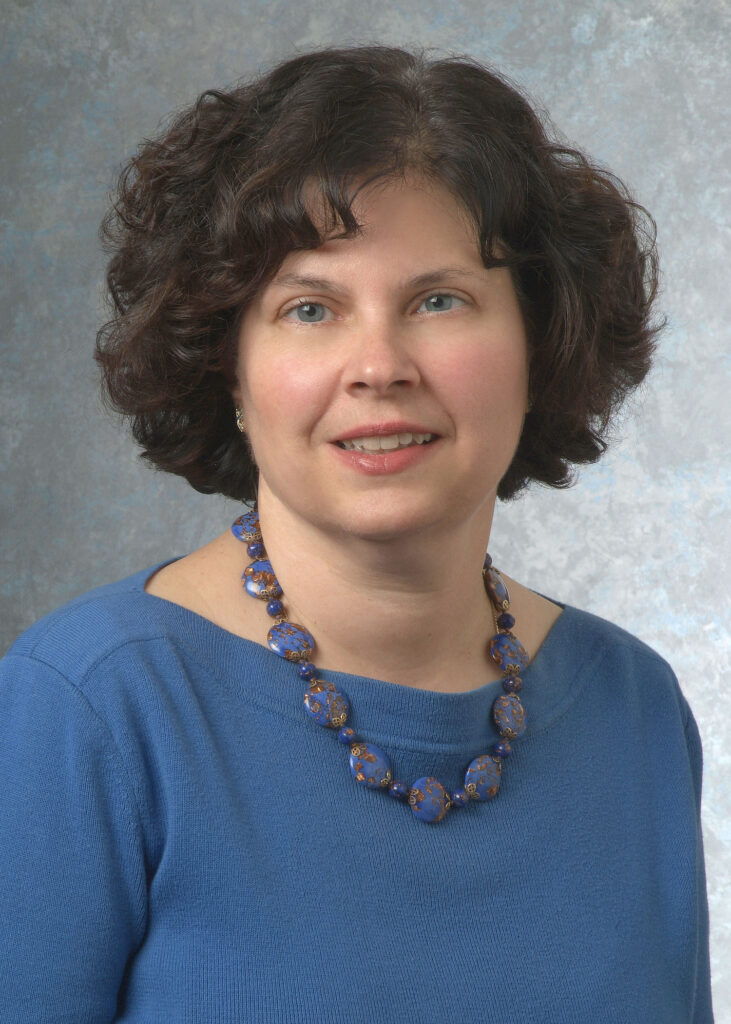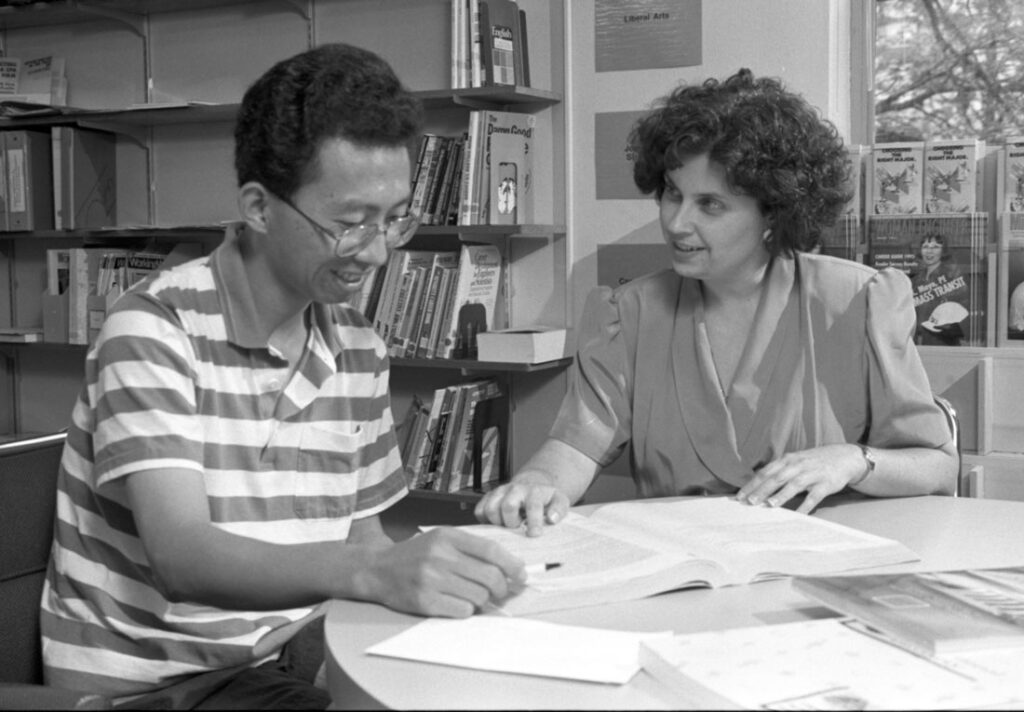Ask anyone at Case Western Reserve University what their favorite thing about the institution is, and almost all will say—without hesitation—it’s the people.
Among those who make the university such a special place to be are those who choose to dedicate significant portions of their lives to the institution. This includes staff members who spend decades on campus helping to advance CWRU’s mission.
Learn more about two people who’ve made CWRU a great place to work and study: Tina Filsinger and Debbie Fatica, two staff members who joined the university in the 1980s.
Tina Filsinger

If you’ve had a conversation with Tina Filsinger, you’ve likely heard her sign off with the phrase, “Enjoy the moments.” Those words are set to take on a new meaning for the longtime Case Western Reserve staff member as she prepares to retire from the university after more than four decades of service.
Since 1982, Filsinger’s weekdays have revolved around performing diverse duties as a department assistant for various units across campus. Her tenure began at the School of Management (now Weatherhead School of Management) where she was involved in the start-up of the Mentor Program, Minority Management Educational Preparation Program, and the campus-wide Diversity Program.
After serving as a clerk in Access Services and Parking Services, she has most recently supported the Division of Campus Services, developing, implementing and managing procedures, and ensuring the effective administration of units including the Maltz Performing Arts Center, Tinkham Veale University Center and the Office of Real Estate.
Come March 11, she plans to refocus her efforts on a new goal: relaxation.

“I’m going to do as little as possible, you know, bowling, bocce, gardening and traveling,” Filsinger said. “I’m going to do things I really didn’t get to do. I’m just going to work to live, not live to work anymore. It’s all about me now.”
The moment she’ll remember most from her time at CWRU? When the management school reached 100 full-time Master of Business Administration students in the early 1980s: “We had a big party at the dean’s house to celebrate that major milestone. I have many, many fond memories.”
And in those 42 years at Case Western Reserve, Filsinger has grown and evolved just like the university. When she first started, she remembers using carbon paper and a typewriter.
“Through the years I’ve seen many changes and improvements to the university,” Filsinger said. “I’ve also seen the student body seemingly getting younger as I get older. What I’ll miss most are the people and friendships I’ve made. Peace, ciao!”
Debbie Fatica

For Debbie Fatica, it has always been about the students. From leading cooperative education initiatives and creating dual-degree programs to establishing the Case School of Engineering’s Peer Advising program, Fatica has enhanced the student experience in a number of ways over her 38-year career—and Case Western Reserve University students and alumni are grateful for the role she played in their journeys.
“You have definitely left a legacy here,” one Case School of Engineering peer advisor shared in a message to the assistant dean.
Fatica joined the university in May of 1985 as the Director of Cooperative Education and was instrumental in the development and growth of the program, which (to this day) provides CWRU students with real-world working experiences while maintaining a student status. Generations of students have taken advantage of co-op placements, landing roles at over 500 prestigious organizations. By 1990, Fatica was not only the director of co-op, but also the associate director of the career planning and placement office.

In 2000, Fatica was asked to build the Office of Curricular Enhancements & External Assessment—the office currently known as the Division of Engineering Leadership and Professional Practice (DELPP)—and serve as the assistant dean in the Case School of Engineering where she’s spent the last 24 years.
At the top of her fondest memories list? “The wonderful, talented, and bright students and the fascinating and supportive colleagues, deans, and faculty,” she said.
“Debbie has been a key leader in the school of engineering and has had a profound impact on engineering students over the course of her career,” Venkataramanan ‘Ragu’ Balakrishnan, the Charles H. Phipps Dean of the Case School of Engineering, said. “There is no doubt that her knowledge, passion, and dedication will be greatly missed, though we are delighted for her and her family as she enters this new stage.”

